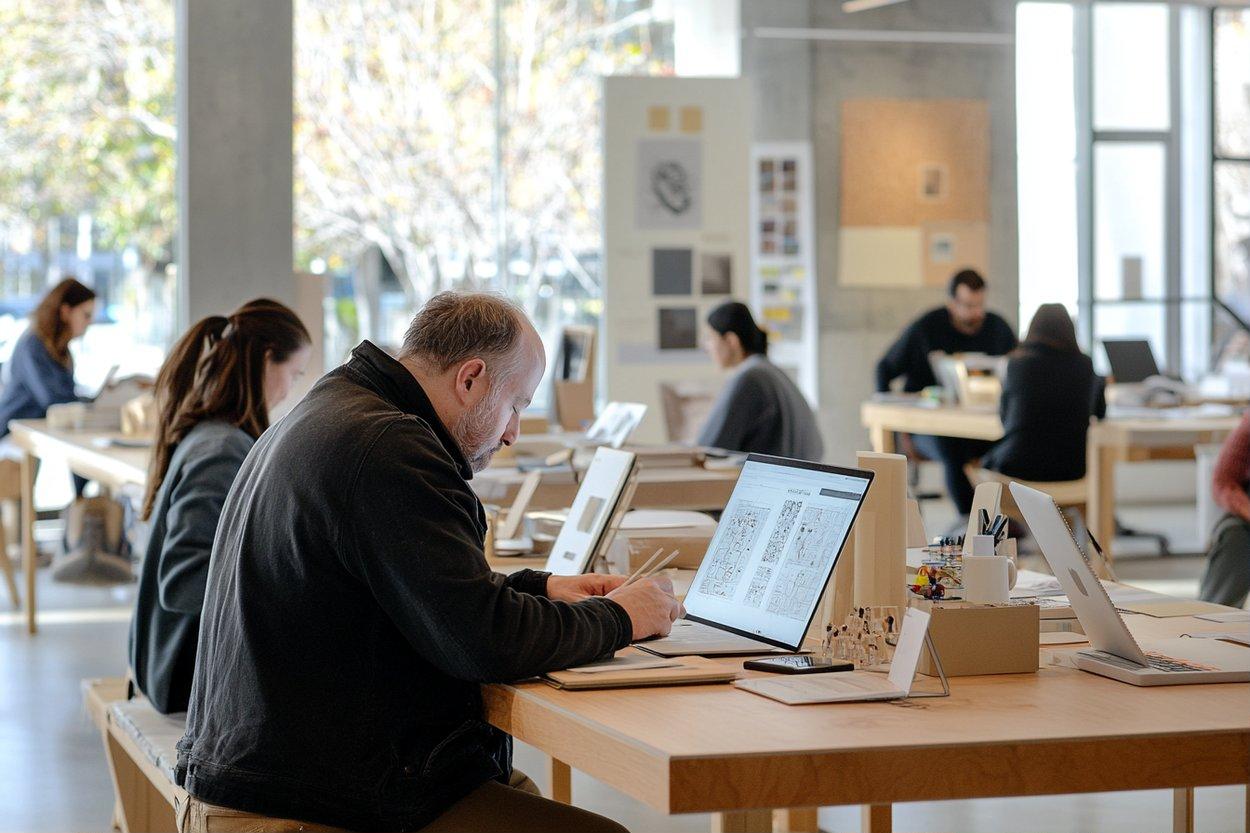How Coworking Spaces in the Netherlands Boost Creativity and Collaboration
Coworking spaces in the Netherlands are more than just shared desks — they’re creative environments where people connect, ideas flow, and work becomes more meaningful. Whether you're a freelancer, entrepreneur, or remote employee, a well-designed coworking space can enhance your focus and motivation. Start by exploring how the right setup and community can transform your daily routine.

What Makes Dutch Coworking Spaces Different from Traditional Offices?
Dutch coworking spaces distinguish themselves through their emphasis on community-driven design and cultural values that prioritize work-life balance. Unlike traditional offices with rigid hierarchies and isolated cubicles, these spaces feature open layouts, natural lighting, and zones designed for different work styles. Many incorporate distinctly Dutch elements like bicycle storage, sustainable materials, and informal meeting areas that encourage spontaneous conversations. The focus extends beyond productivity to creating environments where professionals can thrive personally and professionally.
The Environment That Fuels Productivity and Focus
Creating the right physical environment is crucial for maintaining productivity, and Dutch coworking spaces excel at balancing stimulation with concentration. These spaces typically feature varied work zones, from quiet areas with individual desks to collaborative spaces with whiteboards and comfortable seating. Natural elements like plants, large windows, and ergonomic furniture contribute to reduced stress levels and improved focus. Many locations also offer amenities such as meditation rooms, phone booths for private calls, and even nap pods, recognizing that productivity stems from holistic well-being rather than constant desk time.
How Do Coworking Spaces Foster Innovation and Creative Thinking?
Innovation thrives in environments that encourage experimentation and cross-pollination of ideas. Dutch coworking spaces facilitate this through regular workshops, networking events, and informal gathering spaces where professionals from different industries naturally interact. The diversity of backgrounds - from tech startups to creative agencies to consulting firms - creates opportunities for unexpected collaborations and fresh perspectives on common challenges. Many spaces also provide access to mentorship programs, investor networks, and skill-sharing sessions that help members expand their capabilities and explore new approaches to their work.
Real Connections: The Power of a Like-Minded Community
The community aspect of coworking spaces addresses one of the biggest challenges facing modern professionals: isolation. Members often report that the casual interactions throughout their day - whether discussing a project over coffee or participating in community events - provide both social connection and professional inspiration. Dutch coworking spaces typically foster these connections through member directories, shared interest groups, and organized social activities. The result is a support network that extends beyond professional collaboration to include friendship, accountability, and shared learning experiences.
What Unique Features Do Netherlands Coworking Spaces Offer?
Netherlands coworking spaces often incorporate features that reflect local culture and values. Many provide extensive bicycle facilities, including secure parking and maintenance stations, acknowledging cycling as a primary mode of transportation. Sustainability initiatives are common, with spaces featuring energy-efficient lighting, recycling programs, and partnerships with local organic food suppliers. Some locations offer unique amenities like rooftop gardens in Amsterdam, canal-view meeting rooms, or partnerships with local museums and cultural institutions that provide members with exclusive access to events and exhibits.
Flexible Setup, Steady Growth: What to Expect from a Coworking Space
The coworking landscape in the Netherlands offers various membership options and pricing structures to accommodate different needs and budgets. Understanding these options helps professionals make informed decisions about their workspace investments.
| Space Type | Location | Monthly Cost Range | Key Features |
|---|---|---|---|
| Hot Desk | Amsterdam/Utrecht | €150-300 | Flexible seating, basic amenities |
| Dedicated Desk | Amsterdam/Utrecht | €250-450 | Personal workspace, storage |
| Private Office | Amsterdam/Utrecht | €400-800 | Enclosed space, meeting room access |
| Virtual Office | Various Cities | €50-150 | Business address, mail handling |
Prices, rates, or cost estimates mentioned in this article are based on the latest available information but may change over time. Independent research is advised before making financial decisions.
How Can You Maximize Your Coworking Experience?
Success in a coworking environment requires active engagement with both the space and community. Regular participation in events, workshops, and informal gatherings helps build relationships that can lead to collaborations, referrals, and friendships. Taking advantage of all available amenities - from meeting rooms to networking events - maximizes the value of membership fees. Setting boundaries between focused work time and social interaction ensures productivity while still benefiting from community connections. Many successful coworking members also contribute to the community by sharing their expertise, mentoring newcomers, or organizing events that align with their professional interests.
The Netherlands’ coworking spaces represent more than a trend - they reflect a fundamental shift toward more human-centered, flexible approaches to work. By combining thoughtful design, strong communities, and practical amenities, these spaces enable professionals to be more creative, connected, and productive than traditional office environments typically allow. As remote work continues to evolve, Dutch coworking spaces are positioning themselves as essential infrastructure for the future of work, offering solutions that address both professional needs and personal well-being in increasingly integrated ways.




